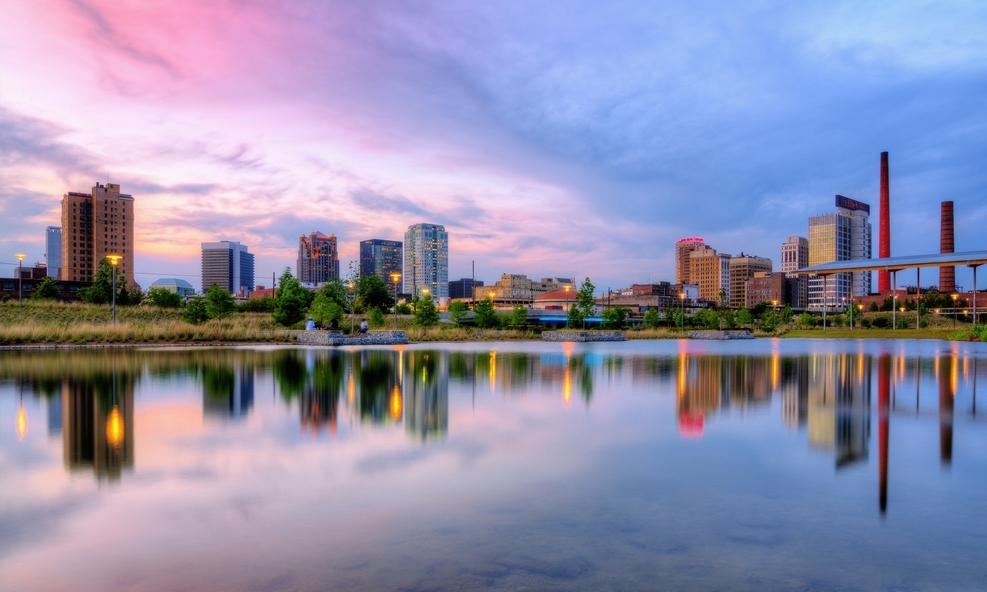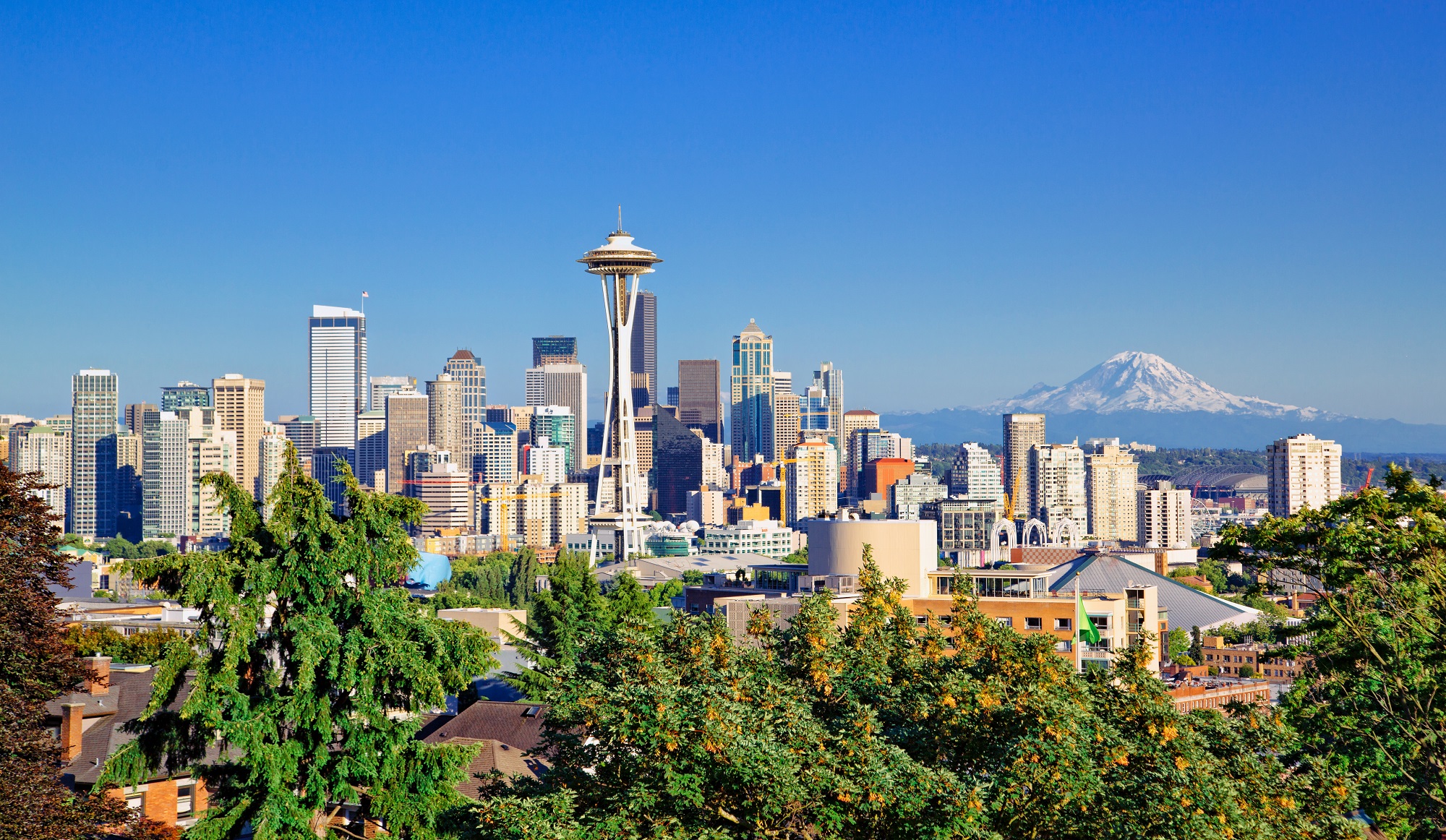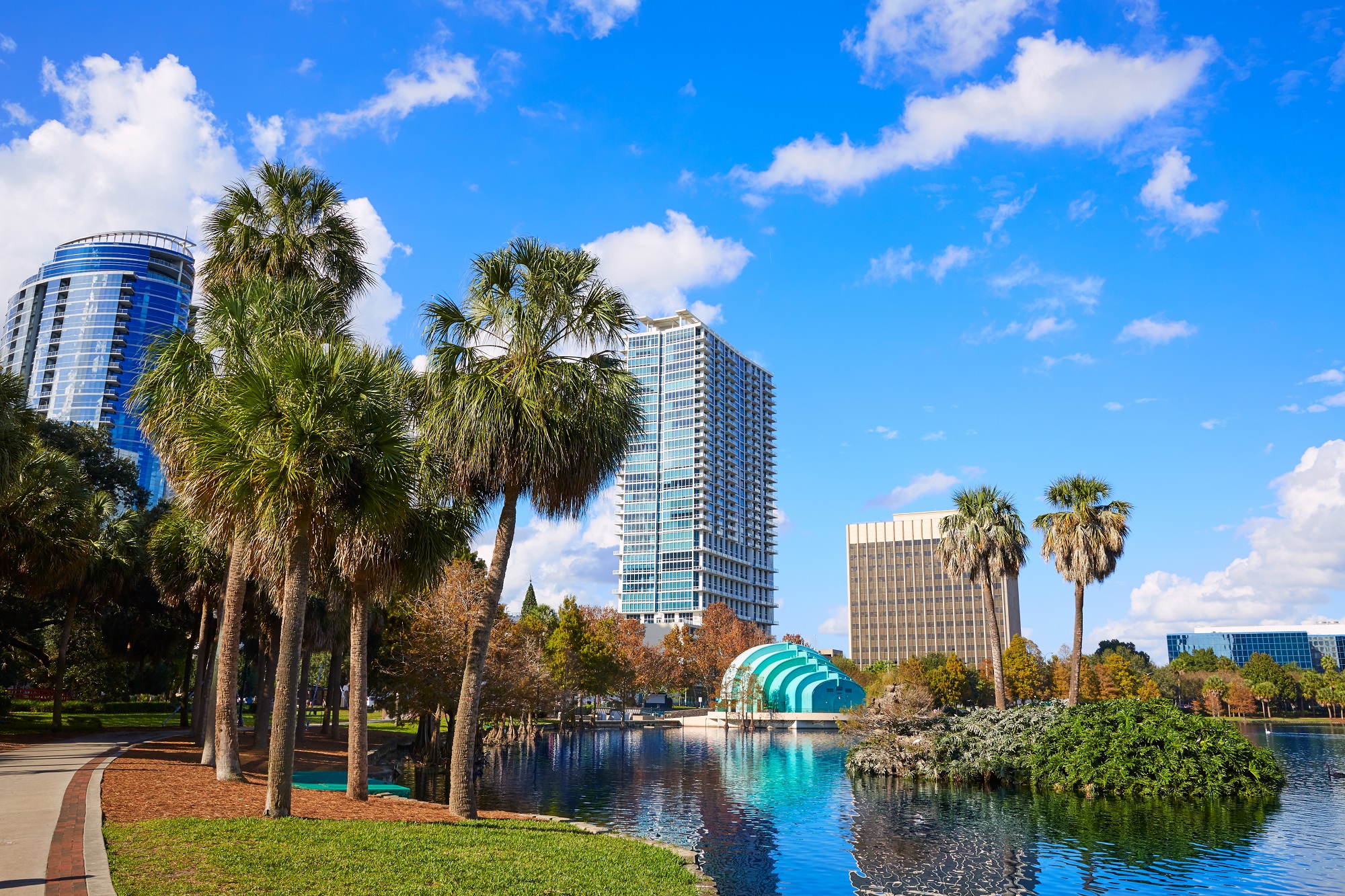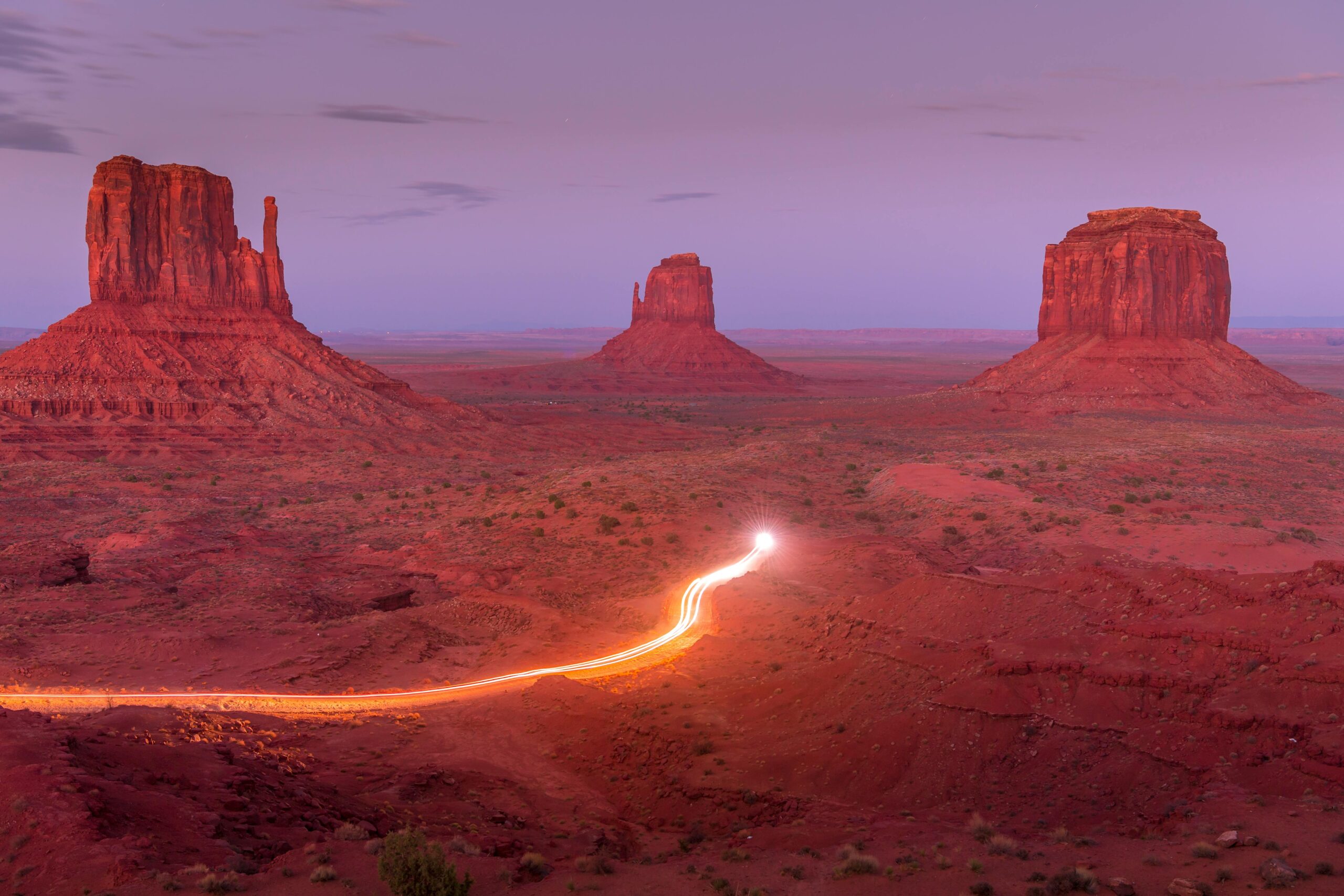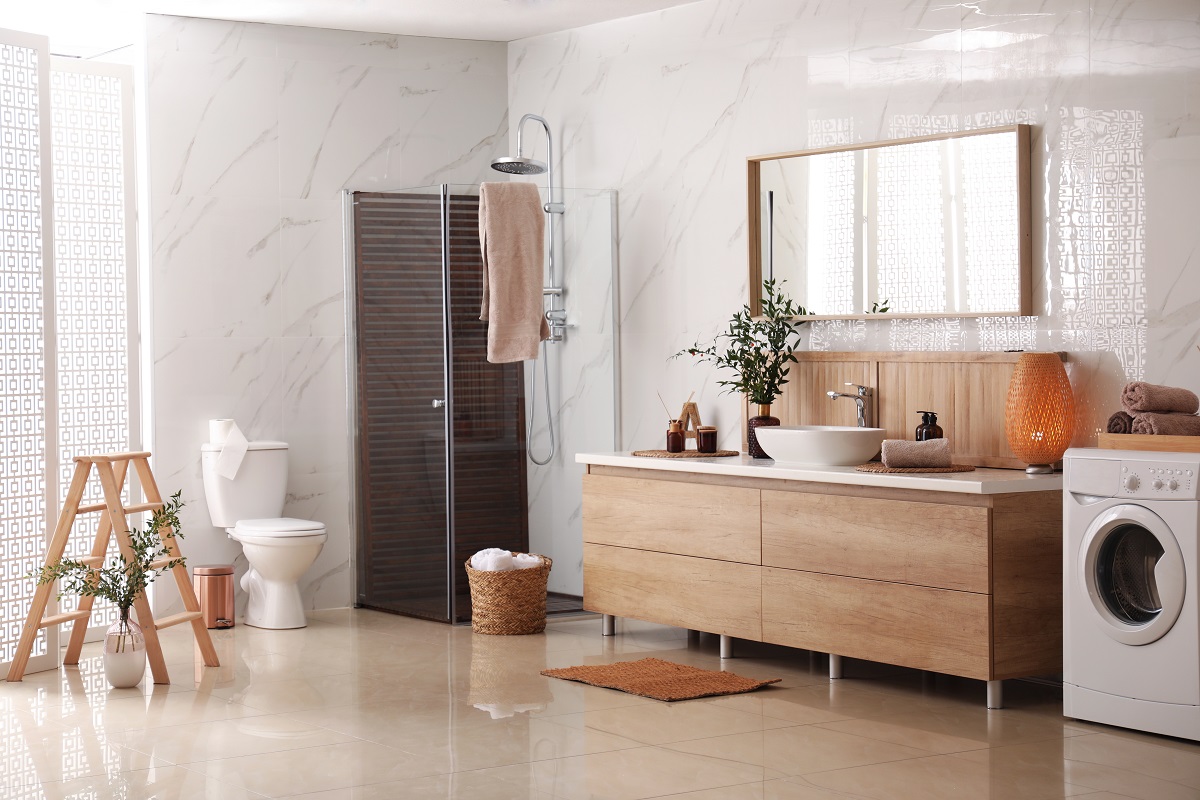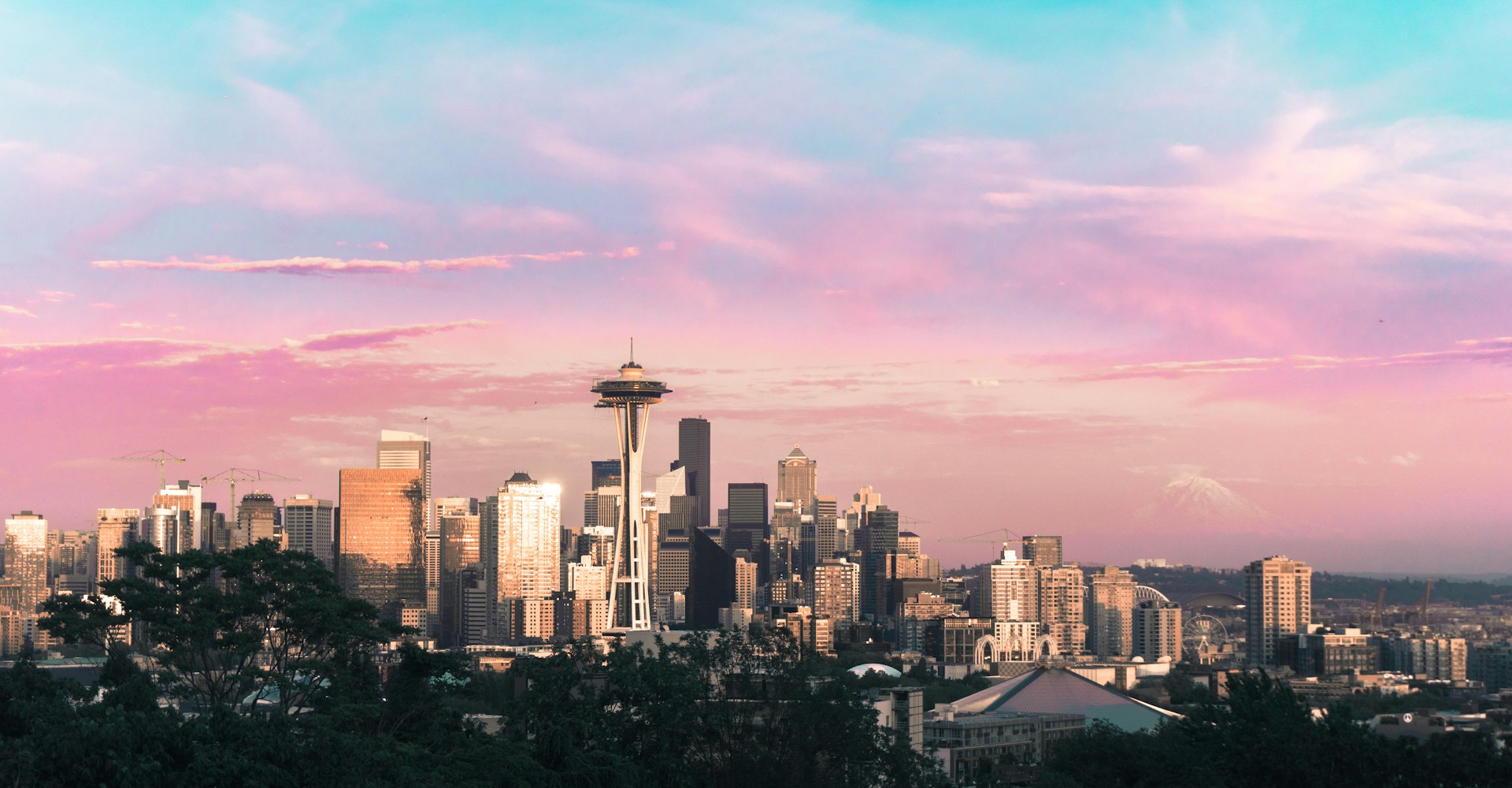
22 Pros and Cons of Living in Seattle
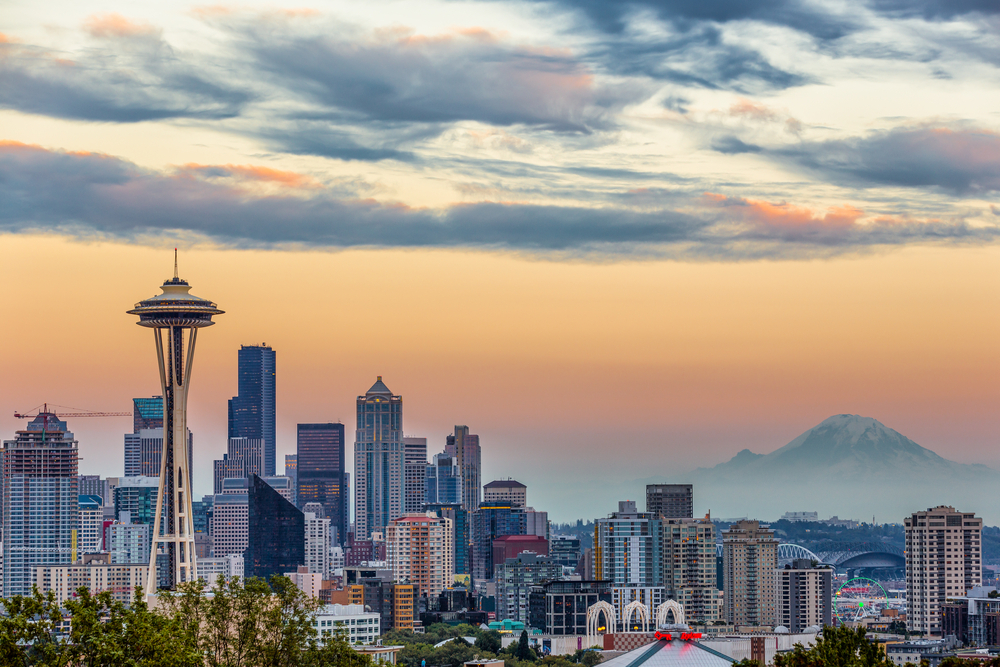
It’s hardly surprising that Seattle, Washington, is one of the fastest-growing U.S. cities since this city of 762,500 people has the best of all worlds. Residents enjoy the laid-back Pacific Northwest lifestyle without sacrificing the diverse culture of a major city.
But, like any city, living in Seattle could have some downsides. Here are 11 pros and 22 cons of Seattle to consider.
Pros of Living in Seattle
Seattle’s growth rate makes sense when you consider all of the excellent reasons to live there. Here are our 11 favorite:
1. Year-round outdoor fitness
Many Seattleites lace up their trainers and hit the trails when the sun comes out — and they can do this any month of the year. The Seattle area boasts miles of year-round hiking trails, rock-climbing gyms, and kayaking opportunities, to name a few of your potential adventures. That’s probably why Seattle is ranked as the fifth-fittest city in the U.S., according to the 2022 ACSM report.
2. Arts-forward culture
It’s a rainy city — so of course, all that time spent indoors has made the average Seattleite well-read. UNESCO recognized Seattle as a “creative city of literature” because it hosts the most bookstores in the country.
Seattleites aren’t just voracious page-turners. The Seattle area is full of artistic things to do. You can choose from art museums, including the Chihuly Glass Museum and Studio in Seattle Center, a lively gallery scene in Pioneer Square, and music venues scattered throughout several Seattle neighborhoods.
3. Great parks — most within a 10-minute walk!
The Emerald City spends an average of $325 per capita on parks and recreation. Most Seattleites live within 10 minutes of a green park. You can also take a quick trip on public transportation to Ballard’s Golden Gardens and Lake Washington’s Matthews Beach or enjoy views of the Puget Sound and Cascade Mountains from Discovery Park.
4. Tax-free income
If hired as a Seattle, WA employee, your income is free from Washington state taxes. You aren’t free from the IRS, but it does make spending on weekend trips to see some of the most beautiful scenery in the U.S. that much easier.
5. Lively foodie culture
It’s hard to decide on Seattle’s best restaurants. A long coastline, diverse agriculture, and bustling international communities make the city a treasure chest for serious foodies. You’ll find Mexican, Vietnamese, and Ethiopian in Capitol Hill, stunning restaurant views in West Seattle’s Elliott Bay and Alki Beach, and rub elbows with locals in Georgetown’s infamous breweries.
6. Great neighborhoods
There’s nothing wrong with checking bustling highlights like the Seattle Center, the Space Needle, and Pike Place Market off your Seattle bucket list. But once Puget Sound falls into the background, Seattle’s charm resides in its unique neighborhoods. Explore Capitol Hill’s LGBTQ+ culture, galleries, and coffee shops, Belltown’s clubs and high-rise condos, or Alki Beach and West Seattle’s small-town, laid-back appeal. No matter which neighborhood you end up in, there’s something waiting to win you over.
7. Access to nature
Nature abounds in the Pacific Northwest. Within the greater Seattle area, you’re within driving distance of the Cascade Mountains, water sports in the Puget Sound, and ferries that take you to several islands off the Washington Coast.
8. No scary weather
Hurricanes, tornadoes, droughts, and other tempests don’t have a home in Washington. The mild maritime climate in Puget Sound means you won’t battle surprise weather events. Count lazy summer mosquitoes at dusk as your biggest pest — and it’s nothing a little repellent can’t handle.
9. Quirky culture
When you imagine Seattle culture, you probably think Starbucks and Nirvana. You’re not far off. But one thing that makes Seattle a good place to live is its something-for-everyone quirk. There’s nothing too odd for Seattleites, including a giant troll that lives under a bridge in Fremont. Plus, there’s an active gaming community, music festivals like Bumbershoot, and an unusual number of ghost tours around Seattle’s historic neighborhoods.
10. The job market
Seattle has high-paying tech jobs with dream companies like Google, Microsoft, Amazon, and Facebook. Beyond tech, the local economy is also growing fast, with an estimated 115,000 additional jobs by 2035 and a ripe startup culture. Seattle boasts an ultra-low 3% unemployment rate and an average hourly wage of $28.
11. Liquid love
Puget Sound loves coffee and beer (and most liquors and wines, for that matter). With more than 850 coffee shops and as the birthplace of Starbucks, Seattle’s coffee culture provides the liquid energy locals need to thrive.
After your morning brew, you can try to choose from one of Seattle-Tacoma’s 174 brewpubs — the most of any U.S. city. If you aren’t an IPA drinker or craft beer enthusiast, don’t worry. Seattle neighborhoods are full of cocktail and wine bars.
Tips From a Landing Member
“When it comes to specialty coffee, Seattle is years ahead of the rest of the country. Specialty coffee drink menus rivaled the best cocktail bars I’ve been to, experimenting with flavor combinations I had never previously considered.”
— Becca Grishow, “How I Spent Six Weeks Living in Seattle“

Cons of living in Seattle
Like any major city, Seattle has its cons, too. See if any of these 11 cons feel like a dealbreaker for you:
12. The Seattle Freeze
Nordic ancestry and buckets of rain might be the source of the infamous “Seattle Freeze,” which isn’t about the weather but about the attitude of many residents. Despite the average Seattleite’s friendly disposition, non-locals might struggle to form long-lasting friendships or break through this frost.
But the cold shoulder may not differ from any other large U.S. city where busy work schedules and traffic jams crowd your calendar. Become a regular at your neighborhood coworking space, join a hiking group, or attend local meetups, and you’ll quickly thaw that chilled exterior.
13. High cost of living
Despite no Washington state income taxes, Seattle isn’t cheap. According to MIT’s living wage calculator, a single adult with no children needs a full-time hourly wage of $21.48 to live comfortably in Seattle. The $18.69 in-city minimum wage doesn’t cut for minimum wage hourly workers. And, according to MIT’s calculations, that same adult’s cost of living spreads over an average of $4,686 on food, $5,316 on transportation, and $18,388 on housing. That means Seattle has the ninth-highest cost of living in the U.S., as of late 2023.
14. Expensive and competitive housing and rentals
The sea to the west and mountains to the east limit Seattle’s growth. While a small city vibe is a plus, competition for housing has driven rent up. The infamous Bellevue isn’t just an expensive Seattle neighborhood — it’s one of the priciest neighborhoods in the country. Likewise, high-rises in downtown Seattle and homier digs along the city’s coastlines have steep price tags.
15. Potential earthquakes
Seattle is safe from most natural disasters. But, the Pacific Northwest experiences a “megathrust” earthquake every 500 years or so on average, and a fault line runs through Seattle.
16. Not that diverse
The city’s demographics sway heavily toward White Democrats. However, the city’s reputation for tolerance is well-deserved, and this Washington city boasts the third-highest LGBTQ+ population in the nation.
17. Overcast skies and gloomy weather
Seattle is one of the cloudiest cities in the U.S. All-day sun can be scarce from about October through early June in the Evergreen State. Look at the bright side: the rain is responsible for Washington state’s impressively green and unique fir-rich forests, where you can hike on overcast or sunny days.
18. Rising crime rate
If safety is a concern, Seattle is a good place to live. It boasts a reputation for being a safe city with low violent crime rates compared to other major cities. Whether walking downtown, enjoying Discovery Park at dusk, or bar hopping in Capitol Hill, most Seattleites feel safe.
But that doesn’t mean there are no Seattle safety concerns. Property crimes dominate Seattle’s crime rate. Locals know never to leave valuable items (or any items, really) visible through their car windows, and a good lock for your home is a must.
19. The big spiders are… very big
You might spot a kitten-sized arachnid scurry through your basement. Washington’s Giant House Spiders are the fastest arachnids in the world. The good news? They’re non-aggressive and munch on the other bugs, like those pesky mosquitoes.
20. Terrible traffic
Seattle is a car city with major traffic problems. According to GPS manufacturer TomTom, the average Seattleite wastes an estimated 52 hours per year in traffic.
21. The Big Dark
The sun sets before 6 p.m. for nearly five months, and rises late, too. On the year’s shortest day in December, the sun rises at 7:54 a.m. and sets at 4:20 p.m. Savvy Seattleites know to get their vitamin D during the day and take advantage of long summer days, but if you’re used to year-round sunscreen, this climate might hit you hard.
22. Potentially difficult dating prospects
At least one podcast has called Seattle the “Worst city for singles,” while another study says it’s one of the best. Like any other major U.S. city, you get what you give, but you might need to work harder than usual to put yourself out there. Luckily, a vibrant LGBTQ community, outdoorsy clubs, and sports scene (go Seahawks!) offers a special somebody for everybody. You just have to get out and look for them.
The Best Places to Live in Seattle
It’s clear that Seattle is a good place to live for outdoorsy bookworms who love a good meal. But what neighborhood should you choose for your big Seattle move? Here’s a quick Seattle location guide:
- Capitol Hill: Creatives, hospitality workers, and startup professionals will fit into Capitol Hill’s inclusive arts and nightlife culture.
- South Lake Union: Tech professionals and hardcore urbanites who appreciate convenience and modern amenities should look no further than South Lake Union.
- Ballard: What you spend on rent, you get back into a reputable school system, quality restaurants, and beautiful homes ideal for raising a family.
- Fremont: This community-centric neighborhood is walkable, accessible to downtown and other neighborhoods via I-99, and bordered by beautiful Woodland Park and the Fremont Cut canal.
Thinking about moving to Seattle, WA?
Whether you’ve decided to make Seattle your new home or just want to test the city out to see if it’s for you, consider renting with Landing, which offers fully furnished apartments in Seattle with flexible stays that make it easy to move on your terms. Check out our Seattle moving guide and learn more about becoming a Landing member today!

